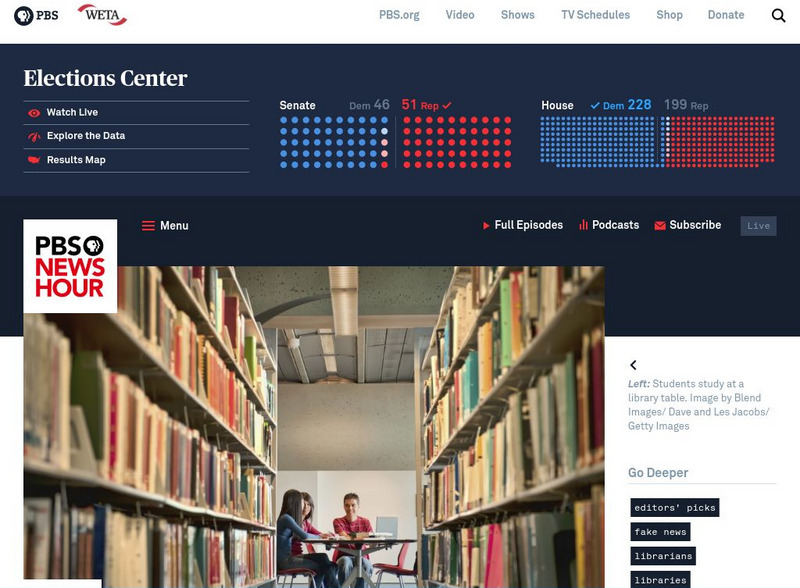Other
Eastport Elem. Sc.: Mrs. Donahue's Site: Distinguishing Between Fact and Opinion
This is a teacher resource for students that focuses on how to separate fact from opinion. Includes questions to ask about a piece of text, examples, and links to online exercises to try.
Sam Houston State University
Sam Houston State University: Fact and Opinion Ii Post Test
Students choose the fact and opinion statements in four multiple choice questions and then read two short texts and answer two multiple choice questions about facts and opinions presented in each. Answers are available when exercise is...
E Reading Worksheets
E Reading Worksheets: Fact and Opinion Lessons
In this learning module, students will learn more about the differences between facts and opinions. A PowerPoint presentation and related activity are provided to reinforce the topic of facts vs. opinions. This module is designed to...
Alabama Learning Exchange
Alex: The Bombing of Hiroshima Fact or Opinion
Eleventh graders will read "A Noiseless Flash" from Hiroshima, written by John Hersey with a partner and record facts (objective reporting) and opinions (subjective reporting) as given in the reading selection.
Other
Grade 1 Informative Writing Lessons
Authored by the Tsehai Russell and Della Wright, CLR fellows, this resource provides a 5-day unit of informative writing lessons. Focus lessons related to facts and opinions and paragraph writing. This series is supported by the Academic...
TED Talks
Ted: Ted Ed: How to Choose Your News
Damon Brown gives the inside scoop on how the opinions and facts (and sometimes non-facts) make their way into the news and how the smart reader can tell them apart. [4:48]
Media Smarts
Media Smarts: How to Recognize False Content Online: The New 5 Ws [Pdf]
A tip sheet to help both students and adults learn how to test online content for validity.
Associated Press
Associated Press: Facebook's Fake News Problem: What's Its Responsibility?
Is it real? Is it reliable? Can it be confirmed? Always check sources of news found through social media outlets before believing it. Facebook's Mark Zuckerberg is facing criticism for the amount of fake news posted on Facebook....
PBS
Pbs News Hour: Column: Can Librarians Help Solve the Fake News Problem?
Was it only a matter of time that people would begin buying into any news, even when it was actually fake? This writer felt it was no surprise. Find out why and how a librarian can help educate students how to best vet resources for...
TED Talks
Ted: Ted Ed: How False News Can Spread
In previous decades, most news with global reach came from several major newspapers and networks with the resources to gather information directly. The speed with which information spreads now, however, has created the ideal conditions...
CommonLit
Common Lit: "Should Girls Be Allowed to Play High School Football?" by Josh Bean
A learning module that begins with "Should Girls Be Allowed to Play High School Football?" by Josh Bean, accompanied by guided reading questions, assessment questions, and discussion questions. The text can be printed as a PDF or...
Writing Fix
Writing Fix: The Wacky Smear Campaign
Inspired by Barry Lane's book 51 Wacky We-Search Reports, in this cross-curricular instructional activity students learn how to summarize properly.
Other
4 Law School: Marbury v. Madison
This article breaks down the facts of the Marbury v. Madison case, and briefly summarizes the Justices' opinions.
Education.com
Education.com: L.1.1.j Worksheets
[Free Registration/Login Required] In first grade, students are taught to independently write different types of sentences. These types include declarative (a statement of fact or opinion), interrogative (a question), imperative (a...
Other popular searches
- Fact Opinion Lesson Plans
- Fact and Opinion Passages
- Fact Opinion Worksheet
- Fact and Opinion Lessons
- Teaching Fact vs. Opinion
- Fact and Opinion Worksheets
- Teaching Fact and Opinion
- Fact and Opinion Games
- Reading Fact and Opinion
- Fact and Opinion Keywords
- Identifying Fact or Opinion
- Fact Opinion Quiz








